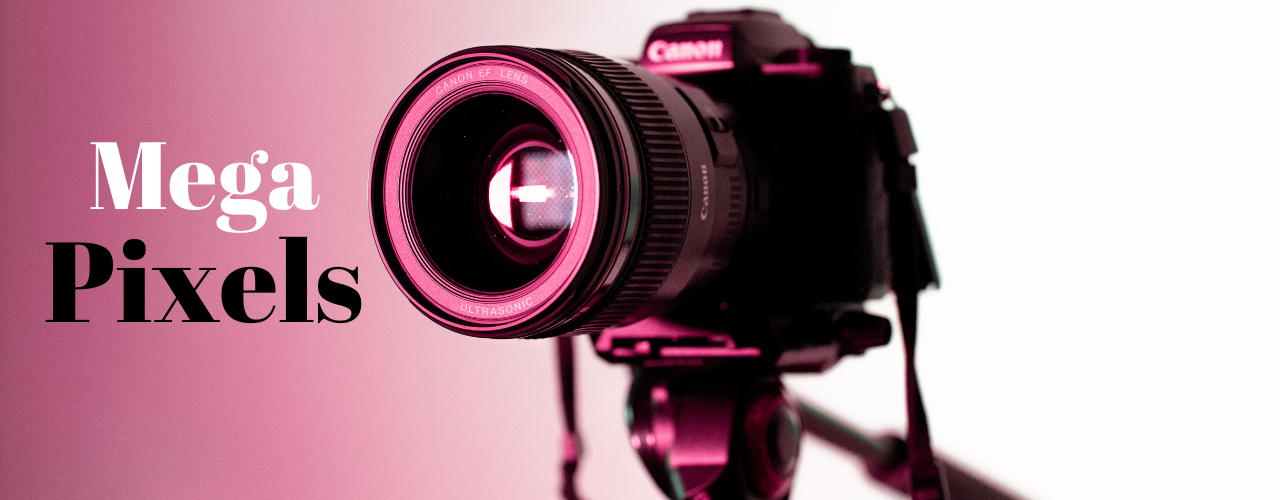Introduction
In the digital age, where images and videos dominate our lives, the term “megapixel” holds significant importance. Whether you are an avid photographer, a smartphone enthusiast, or a security-conscious individual, understanding megapixels is essential for making informed choices when it comes to imaging technology. In this article, we will dive deep into the world of megapixels, exploring their definition and why they matter in modern technology.
Table of Contents
Understanding Megapixels
What is a Pixel?
Before we unravel the mystery of megapixels, let’s start by understanding the basic building block of digital images: the pixel. A pixel is the smallest individual unit that makes up a digital image. It is essentially a tiny dot of color that combines with other pixels to create the complete image you see on your screen.
The Concept of Megapixel
Megapixel is a compound term, combining “mega” – meaning million, and “pixel.” In simple terms, it refers to one million pixels. When we talk about a camera’s megapixel count, we are essentially discussing the number of pixels its sensor can capture and process to form an image.
Megapixel in Digital Imaging
Megapixel and Image Resolution
One of the primary factors affected by megapixels is image resolution. As the number of megapixels increases, so does the resolution of the image. Higher resolution images contain more details and can be printed at larger sizes without losing quality.
Relationship Between Megapixel and Image Quality
While more megapixels can lead to higher resolution, it doesn’t guarantee better image quality alone. Other factors, such as sensor size, lens quality, and image processing algorithms, play crucial roles in determining overall image clarity and sharpness.
Megapixel in Photography
Megapixel and Print Size
For photographers, especially those engaged in professional printing, megapixels play a crucial role. Higher megapixel cameras allow photographers to print larger images without compromising on sharpness and detail.
Benefits and Drawbacks of High Megapixel Cameras
While high megapixel cameras offer advantages in print size and detail, they come with trade-offs. Larger image files require more storage space, and they may have reduced performance in low-light conditions due to smaller pixel size.

Megapixel in Smartphone Cameras
Impact of Megapixel on Smartphone Photography
The megapixel race has been a significant trend in smartphone cameras. Manufacturers often boast about higher megapixel counts to attract customers, but does more megapixels always mean better smartphone photography?
Balancing Megapixel and Other Camera Features
Smartphone manufacturers now focus on finding the right balance between megapixels and other camera features, such as image processing, low-light performance, and optical stabilization.
Megapixel in Security Cameras
Role of Megapixel in Surveillance
Megapixel technology has revolutionized the surveillance industry. Higher megapixel security cameras offer enhanced clarity and better identification of subjects in recordings.
Factors Affecting the Performance of Megapixel Security Cameras
Despite the advantages, megapixel security cameras come with certain challenges, such as increased bandwidth and storage requirements.
Megapixel in Video Recording
Megapixel and Video Quality
Megapixel isn’t just about still images; it also impacts video quality. Higher megapixel sensors allow for recording videos in higher resolutions, such as 4K and beyond.
4K and Beyond: Advancements in Video Megapixel Technology
Advancements in megapixel technology continue to push the boundaries of video quality, offering more immersive and detailed viewing experiences.
Choosing the Right Megapixel Camera
Identifying Your Needs and Use Cases
Selecting the right camera involves considering your specific needs and how you plan to use the images or videos.
Considering Other Camera Features
While megapixels are essential, other features like autofocus, aperture size, and ISO sensitivity also significantly impact the overall camera performance.
Megapixel and Storage Requirements
Storage Challenges with High Megapixel Images and Videos
As megapixel counts increase, so do the storage requirements. Dealing with large image and video files demands robust storage solutions.
Solutions to Manage Storage Demands
Cloud storage and external drives are some of the solutions available to manage the storage demands of high megapixel content.
Debunking Megapixel Myths
Myth 1: Higher Megapixel Always Means Better Quality
We debunk the misconception that higher megapixels automatically translate to better image or video quality.
Myth 2: Megapixel is the Only Factor Affecting Image Clarity
Understanding that while megapixels are essential, various other factors contribute to image clarity and overall quality.
The Future of Megapixel Technology
Ongoing Innovations in Megapixel Sensors
Technological advancements continue to push the boundaries of megapixel capabilities, paving the way for even more sophisticated imaging devices.
Potential Applications Beyond Traditional Imaging
Megapixel technology may find applications in fields beyond traditional photography, such as medical imaging and scientific research.
Conclusion
Megapixels have become a significant aspect of the digital imaging landscape. Understanding their role and limitations empowers consumers to make informed choices when selecting cameras and other imaging devices. As technology continues to evolve, we can expect megapixel capabilities to reach new heights, enriching our visual experiences across various domains.
Read more articles
FAQs
- Q: Does a higher megapixel count mean better zoom capabilities?
- A: Not necessarily. While more megapixels can aid in cropping and zooming to an extent, optical zoom and image stabilization are equally important for superior zoom capabilities.
- Q: Are there any downsides to extremely high megapixel cameras?
- A: Yes, extremely high megapixel cameras generate larger image files, demanding

